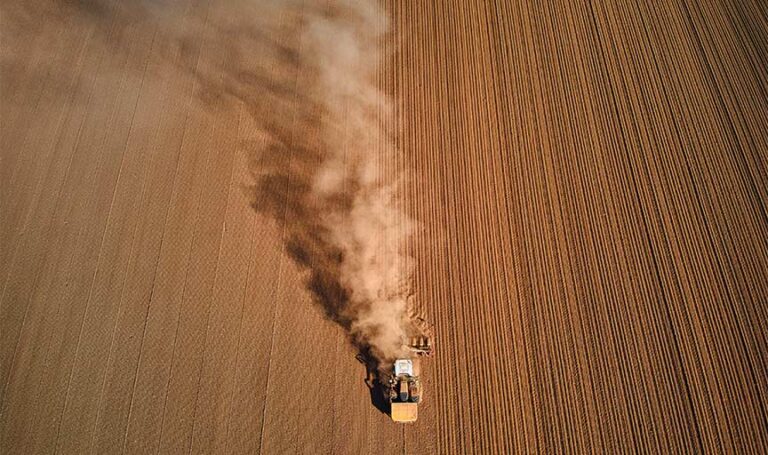Exploitation exposed: British farms accused of modern slavery amid Home Office cover-up
In the shadows of the idyllic British countryside, a sinister truth has finally come to light, one that the Home Office has desperately tried to keep concealed. Recent investigations have revealed that British farmers stand accused of practising modern slavery and inflicting unspeakable suffering upon seasonal workers.
Foreign workers, drawn by promises of hope and employment, have found themselves trapped in a cycle of despair. Denied their basic human rights, they have been subjected to the most degrading forms of abuse, from public humiliation and unpaid labour to substandard living conditions and the outright denial of access to medical care. These are the hallmarks of a system that perpetuates modern slavery, right here in our backyard.
Where have the allegations of modern slavery in the farming industry come from?
A joint investigation conducted by The Independent and the Bureau of Investigative Journalism (TBIJ) has uncovered shocking evidence of mistreatment endured by workers who have travelled long distances to address labour shortages in the UK’s agriculture sector.
The most disturbing aspect of this particular case, aside from the human rights violations themselves, is the fact that the Home Office, the very institution entrusted with safeguarding the rights and dignity of individuals, has sought to shroud this horror from the public eye.
According to the investigation, the government body compiled evidence from secret reports in 2021 and 2022, initially attempting to prevent their release to the public. These reports were only made available after a five-month struggle to obtain them. The severity of the alleged mistreatment of migrants holding seasonal worker visas is said to raise concerns about the government’s compliance with its obligations to combat modern slavery.
The investigation highlights several disturbing incidents. In one case, a Ukrainian woman—hired as a fruit picker through a government-registered recruiter—claimed to have been left “starving” and isolated in her caravan for 11 days after contracting COVID-19, she was not given access to medical assistance or food. Another worker reportedly extracted their own tooth due to being denied dental care by the farm. A Moldovan worker allegedly received only one 15-minute break and was denied access to essential amenities like the restroom, water, and food until she met her work targets.
These stories emerged after the TBIJ obtained 19 inspection reports produced by the Home Office regarding farms employing seasonal workers. Although the names of the farms were redacted for commercial reasons, the reports summarised interviews and findings from inspectors who visited the sites.
A senior Conservative member of the all-party parliamentary group on modern slavery and trafficking, Jackie Doyle-Price, commented that these findings demonstrate that modern slavery is pervasive and that the Home Office must take action against abuse when it is identified.
The UK government introduced the seasonal worker scheme in 2019 to address anticipated labour shortages, exacerbated by Brexit. While initially launching with 2,500 visas available, the scheme is expected to issue as many as 55,000 visas to individuals from countries like Kyrgyzstan, South Africa, and Ukraine this year. The inspection reports indicate that workers in the scheme have experienced much greater exploitation than previously acknowledged by the government.
According to TBIJ’s analysis of the inspection reports, nearly half of the interviewed workers raised concerns about their welfare, including issues related to racism, wage theft, and threats of deportation if they failed to meet their work targets. At one farm, after numerous workers complained about mistreatment, a manager reportedly made discriminatory comments.
Despite the allegations of abuse documented in the Home Office reports, there has been no criminal investigation into the matter, according to a report by the Independent Chief Inspector of Borders and Immigration, obtained by The Independent. Even the Farming Minister, Mark Spencer, claimed that participants in the scheme are “well looked after.”
The reports also reveal that unpaid hours are prevalent. In nearly two-thirds of the inspected farms, workers reported not receiving full payment for their hours worked or excessive deductions, which often exceeded legal limits.
Unlike other work visas where employers sponsor residency permits, the agricultural seasonal worker visa relies on six licensed recruiters, who play a significant role in determining where people will work and whether they can be transferred to other farms in case of issues or reduced work availability.
These recruiters are also responsible for ensuring that participants are fairly treated, properly paid, and reside in suitable accommodations. However, despite the numerous issues raised, no government-licensed recruiter has lost their license or been penalised for failing to meet these standards.
It’s disheartening to see the very ministerial department designed to safeguard human rights exacerbate the problem and then attempt to cover its tracks. The urgency of protecting legitimate workers from exploitation cannot be overstated.






